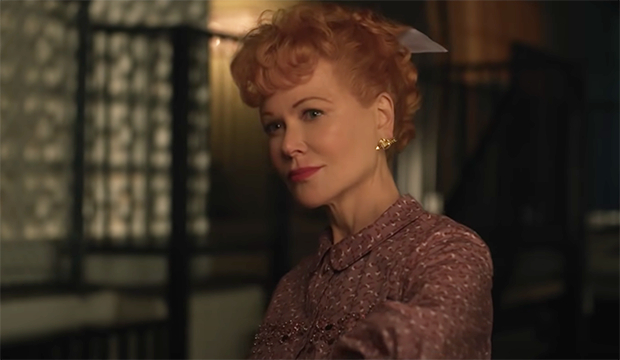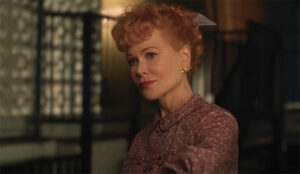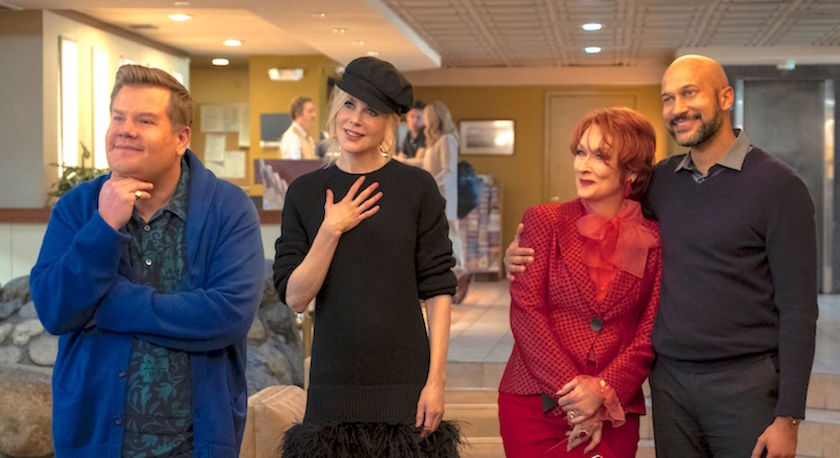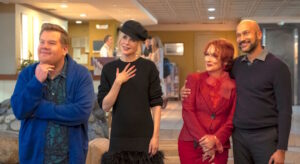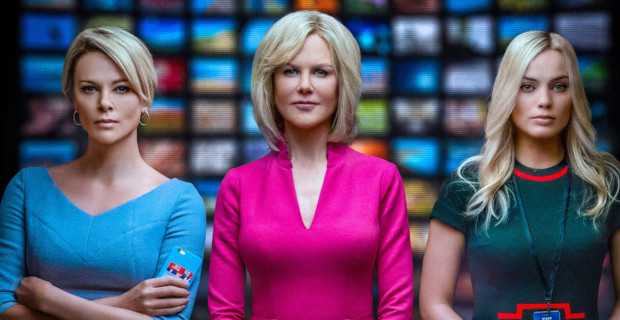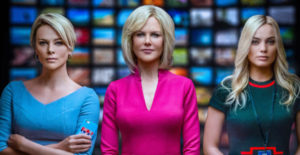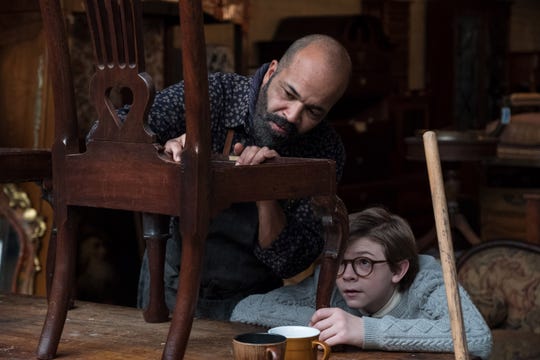Aquaman and the Lost Kingdom
Posted on December 21, 2023 at 2:12 pm
B-| Lowest Recommended Age: | Middle School |
| MPAA Rating: | Rated PG-13 for language and sci-fi violence |
| Profanity: | Some strong language |
| Alcohol/ Drugs: | Beer |
| Violence/ Scariness: | Extended comic-book style fantasy action, some disturbing images of characters getting burned and stabbed, zombie-like characters, monsters |
| Diversity Issues: | Diverse characters |
| Date Released to Theaters: | December 22, 2023 |

In our last episode, Aquaman (Momoa) killed a pirate named Jesse Kane, and his son, David (Yahya Abdul-Mateen II) vows to kill Aquaman in revenge. And Aquaman seizes control of the underwater kingdom from his half-brother Orm (Patrick Wilson). An extra scene in the credits has David Kane joining forces with marine scientist Stephen Shin (Randall Park), who promises to help David get his revenge if David will help him find the lost kingdom under the sea.
We pick up a few years later, where, in the first of a series of clangingly obvious foreshadowing signals, Arthur/Aquaman is now married to Mera (Amber Heard) and he tells us the most important thing in the world to him is their baby son, Junior. Aquaman divides his time between his home at the shore, with his human father, Tom (Temuera Morrison) helping to care for Junior, and his undersea kingdom. He is often frustrated with the bureaucracy of the kingdom’s council. And he is very concerned about the land countries destroying the environment, but, with his kingdom’s long history of secrecy, he cannot reach out to the upper world.
David has found the lost kingdom and the source of immense evil power in the black trident. A frozen spirit who looks like a cross between Groot and the Green Goblin says he will give that power to David if he will bring him the descendent of his enemy, which turns out to be guess who.
Actually, it’s guess whos, but that comes later. In order to fight David, Aquaman will have to team up with Orm, the half-brother who tried to kill him, and who is now in prison. The council will never approve, knowing that breaking Orm out of prison will start a war with his captors, but no matter, Aquaman does it anyway.
Much of the storyline is similar to “The Black Panther,” a kingdom with superior technology trying to decide whether to let the rest of the world know who they are and a villain seeking revenge with a conclusion for one character very reminiscent of Killmonger. And the mechanical octopus-like machine seems an awful lot like the one from “The Incredibles.” Topo, the real (CGI) octopus, is, fun, though, and I wish we’d seen more of him. The special effects range from okay to pretty good. Martin Short makes the best of a character who seems like a cross between Jabba the Hutt and a champion from RuPaul’s drag race.
It swings back and forth between meaningless nods to the issue of climate change (the most damaging technology is imaginary), action scenes with lots of monsters and machines, cliche dialog (“It’s time for me to reclaim my destiny!”), and corny winks at the audience. Here’s hoping the Gunn/Safran regime can do better.
NOTE: Stay for one mid-credits scene
Parents should know that this film has some strong language and constant comic book-style action with some grisly images of monsters. Characters are in peril and there are graphic wounds.
Family discussion: What influenced the relationship between Arthur and Orm? How would we think of environmental threats differently if we thought humanoid creatures lived there? Why did Aquaman try to save David?
If you like this, try: the other DC comics films and the comic books, especially the Neal Adams versions


